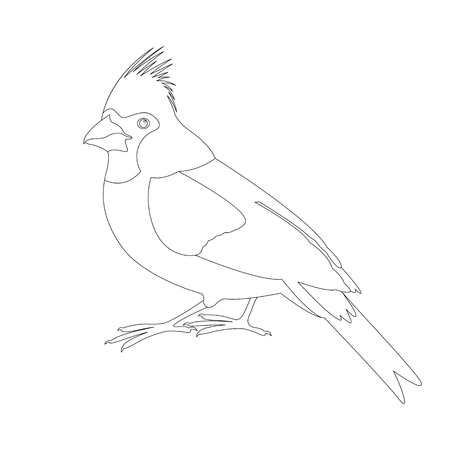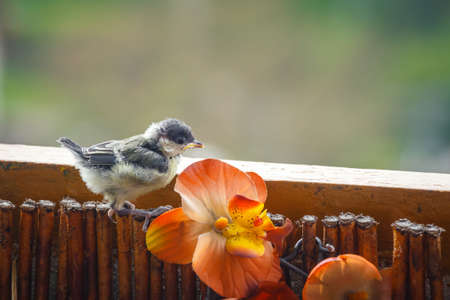Introduction to Bird Care Practices in the UK
For generations, caring for garden birds has been woven into the fabric of British life. Across towns and villages, people from all walks of life take great pride in feeding and housing wild birds, a tradition that reflects not only a deep love for nature but also an appreciation for our feathered companions’ role in the ecosystem. Whether it’s a simple bird table in a suburban back garden or elaborate aviaries maintained by enthusiasts, these practices foster a sense of community and continuity. In many ways, providing food and shelter for birds is more than just a pastime; it’s considered both a cultural obligation and a mark of stewardship over our shared environment. As we gather around kitchen windows or stroll through local parks, the sight and sound of robins, blackbirds, and blue tits brighten even the greyest British day. This longstanding relationship has contributed significantly to local biodiversity, supporting species through harsh winters and helping urban wildlife thrive. However, as these customs have evolved alongside changing landscapes and regulations, understanding the legal and ethical responsibilities involved has become essential for anyone wishing to contribute positively to the well-being of Britain’s beloved birds.
Legal Responsibilities of Bird Keepers
When it comes to keeping and caring for birds in the UK, whether they are wild visitors to your garden or captive companions in your home, there are several legal responsibilities you must be aware of. The United Kingdom has a robust framework of laws and regulations designed to protect the welfare of birds and ensure their habitats are respected. Understanding these rules isn’t just about ticking boxes—it’s about doing right by our feathered friends and maintaining harmony with local wildlife.
Main UK Laws Governing Bird Welfare
The cornerstone legislation is the Wildlife and Countryside Act 1981, which provides broad protection for wild birds, their nests, and eggs. It is illegal to intentionally harm, take, or kill any wild bird, and special provisions apply during the nesting season. For those keeping captive birds, the Animal Welfare Act 2006 sets out a duty of care to provide a suitable environment, diet, and protection from pain, suffering, injury, and disease.
Key Legal Requirements
| Requirement | Description | Applies To |
|---|---|---|
| No harm to wild birds | Illegal to injure or kill wild birds or destroy nests/eggs (with some exceptions) | Everyone |
| Suitable housing for captive birds | Cages/aviaries must allow natural behaviour and provide shelter, space, and enrichment | Bird owners/keepers |
| Adequate food and water | Obligation to offer appropriate nutrition and clean water at all times | Bird owners/keepers |
| No release of non-native species | Illegal to release non-native birds into the wild without proper licence | Bird owners/keepers |
| Use of bird feeders in gardens | Must not cause nuisance or attract vermin; regular cleaning recommended to prevent disease spread | Homeowners/gardeners |
Guidance from DEFRA and RSPB
The Department for Environment, Food & Rural Affairs (DEFRA) offers detailed guidelines for bird keepers on both legal compliance and best practices. Meanwhile, the Royal Society for the Protection of Birds (RSPB) encourages responsible feeding—such as offering seasonally appropriate food and cleaning feeders regularly—to support bird health without causing unintended harm. Both organisations stress that good intentions must go hand-in-hand with informed action; ignorance of the law is no excuse.
If in Doubt, Ask!
If you’re ever unsure about what’s allowed or expected—whether you’re putting up a bird table or thinking of adopting an exotic parrot—it’s wise to consult DEFRA’s website or reach out to local RSPB representatives. Following the law protects not only the birds but also yourself from potential fines or legal trouble down the line. By staying informed and acting thoughtfully, we can all help ensure British birdlife continues to flourish for generations to come.

3. Ethical Considerations in Feeding Wild Birds
When it comes to feeding wild birds in the UK, ethics play a crucial role alongside legal obligations. It’s not simply a matter of putting out some seeds and enjoying the colourful flocks in your garden; thoughtful reflection is needed to ensure our actions do not inadvertently cause harm. One of the main ethical dilemmas surrounds the issue of dependence on feeders. While regular feeding can support birds during harsh winters or food shortages, over-reliance can discourage natural foraging behaviours and make birds vulnerable if the food supply suddenly stops.
Another important consideration is the impact on local wildlife balance. Supplementary feeding may attract dominant or non-native species, potentially outcompeting more vulnerable native birds. This shift can disrupt the delicate ecological balance that has developed over generations in British gardens and countryside. For example, an abundance of easily accessible food can encourage populations of pigeons or squirrels, sometimes at the expense of smaller songbirds, leading to unintended consequences for biodiversity.
Responsible feeding practices are essential to mitigate these risks. It is wise to vary the type and amount of food offered, clean feeders regularly to prevent disease spread, and be mindful of where and when you provide food. As seasoned bird enthusiasts will tell you, moderation is key: too much help can become a hindrance. By respecting both the needs of the birds and the broader ecosystem, we can enjoy the pleasure of birdwatching while upholding our ethical responsibilities as stewards of nature in Britain.
4. Housing Requirements and Best Practices
When it comes to housing birds in the UK, whether you are caring for wild visitors or keeping domestic species, adhering to British standards is both a legal obligation and an ethical duty. The right housing not only ensures the health and welfare of birds but also aligns with the expectations set by organisations such as the RSPCA and DEFRA. Let’s have a look at what constitutes proper accommodation for our feathered friends.
Understanding Legal Standards
The Animal Welfare Act 2006 lays the groundwork for all animal housing in the UK. For birds, this means providing an environment where they can express natural behaviours and are protected from pain, suffering, injury, and disease. Additionally, any aviaries or enclosures must be secure to prevent escape and safeguard from predators—an absolute non-negotiable in both rural and urban settings.
Key Housing Conditions: Wild vs Domestic Birds
| Requirement | Wild Birds (Feeding/Temporary Care) | Domestic Birds (Pet/Aviary) |
|---|---|---|
| Space | Adequate room to stretch wings; avoid overcrowding feeding stations | Cages/aviaries large enough for flight and exercise; minimum size guided by DEFRA codes |
| Shelter | Weatherproof feeding areas; safe nesting boxes if rehabilitating | Protection from drafts and direct sunlight; stable temperature control indoors |
| Cleanliness | Regularly clean feeders to prevent disease spread | Daily cleaning of cages; regular disinfection of perches and toys |
| Safety | No sharp edges or toxic materials near feeding/nesting sites | BPA-free plastics, safe woods; locks on doors to prevent escapes/predator entry |
| Enrichment | Diverse food types; water baths if possible during summer months | Toys, mirrors, swings, and opportunities for social interaction or foraging activities |
The Importance of Enrichment and Social Needs
British bird-keeping tradition places strong emphasis on enrichment. For domestic birds, this involves rotating toys, providing branches of native trees for perching, and ensuring mental stimulation through puzzles or mirrors. For wild birds, offering a range of seeds, nuts, fat balls, and fresh water encourages natural foraging behaviour. Importantly, avoid overcrowding at feeders which can lead to stress or aggression among visiting flocks.
Best Practices for British Bird Housing
- Avoid wire-bottom cages: These are uncomfortable and can cause foot problems.
- Maintain natural light cycles: Place cages where birds experience regular daylight but are shielded from harsh sun or artificial lights late into the evening.
- Legal compliance: Always check local council guidance if erecting outdoor aviaries—planning permission may be required in some areas.
- Pest control: Keep food stores sealed to prevent attracting rodents; clean up uneaten food daily.
- Community awareness: If housing multiple birds or operating rescue services, communicate with neighbours about noise levels and hygiene measures to foster goodwill.
The Final Word from Experience
Having kept budgies since the ‘70s in London terraces and later helped my grandchildren set up their first garden feeder in Kent, I can say that thoughtful housing makes all the difference. Not only do healthy birds thrive, but you’ll also find yourself part of a long-standing British tradition that respects wildlife while bringing joy to your own home. It’s not just about meeting the bare minimum—it’s about creating a safe haven where birds can truly flourish.
5. Dealing with Pests and Neighbours
Feeding and housing birds in your garden can be a delightful pastime, but it does come with its fair share of challenges—namely, managing unwanted pests and maintaining cordial relations with neighbours. In the UK, these aspects are not only matters of common sense but are also influenced by local council guidelines and social norms.
Pest Prevention: A Balanced Approach
One of the most common issues faced by bird enthusiasts is the attraction of less-welcome visitors such as rats, squirrels, and pigeons. While feeding birds is legal, there are ethical responsibilities to ensure that you’re not inadvertently causing a nuisance or health hazard. Use bird feeders designed to deter larger animals and clear away any spilled seeds regularly. Avoid overfilling feeders; little and often is best. Compost heaps should be secured, as they can attract rodents if left open.
Following Local Council Guidance
Local councils across the UK may issue guidance—or even specific bylaws—if bird feeding results in an infestation or neighbour complaints. Regularly review advice from your local authority and act promptly if you notice signs of pests. Failure to address such issues could result in formal warnings or penalties, particularly if your actions are deemed to contribute to vermin problems in the area.
Keeping Good Relations with Neighbours
British culture places great importance on being considerate towards neighbours. If your bird feeding leads to excessive noise, droppings on neighbouring properties, or attracts large flocks, it’s courteous to discuss any concerns openly. A friendly chat over the fence can go a long way towards resolving potential disputes before they escalate. If you live in a flat or shared garden space, always seek permission from relevant parties before installing feeders or bird houses.
Practical Tips for Harmony
To maintain good neighbourly relations, position feeders away from property boundaries and keep them clean. Inform neighbours about what you’re doing, especially if you notice increased bird activity near shared spaces. Be responsive to feedback; sometimes small adjustments, like changing feeder locations or types of food offered, can make all the difference.
By taking these steps—balancing your enjoyment with responsible practices—you uphold both the letter and spirit of UK laws and ethics around wildlife care, fostering a harmonious environment for both humans and birds alike.
6. Community and Conservation Initiatives
Across the UK, communities have increasingly recognised the crucial role they play in both supporting wild birds and preserving their habitats. From bustling cities to tranquil rural landscapes, a host of grassroots programmes and national initiatives have taken root, each designed to promote responsible bird care while upholding legal and ethical standards.
Showcasing Local Efforts
In towns and villages, local wildlife groups often organise events such as guided bird walks, nest box building workshops, and educational talks. These activities not only foster a sense of stewardship but also spread awareness of best practices for feeding and housing birds without causing harm or dependency. For example, many councils now encourage residents to participate in annual surveys like the RSPB’s Big Garden Birdwatch, which gathers invaluable data on bird populations whilst engaging the public in citizen science.
Conservation Charities Leading the Way
National organisations such as the Royal Society for the Protection of Birds (RSPB), The Wildlife Trusts, and British Trust for Ornithology (BTO) spearhead large-scale conservation projects throughout the UK. Their work includes habitat restoration, research into species decline, and campaigns promoting wildlife-friendly gardening. By providing resources—like downloadable guides on safe feeding or how to construct proper nest boxes—these charities help ensure individual efforts align with broader conservation goals and comply with UK law.
Partnerships Between Communities and Landowners
In rural areas, collaboration between farmers, landowners, and conservation bodies has led to remarkable success stories. Agri-environment schemes now reward those who create wildflower margins or preserve hedgerows, both vital for nesting birds and food sources. Local schools frequently get involved too, adopting stretches of countryside or green spaces for ongoing monitoring and care projects that bring children closer to nature and instil lifelong respect for wildlife.
Together, these community-driven initiatives reinforce the UK’s commitment to balancing human enjoyment of birds with ethical responsibility and legal protection. As more people join in—from urban back gardens to expansive farmland—the future looks brighter for both our feathered friends and those who cherish them.

